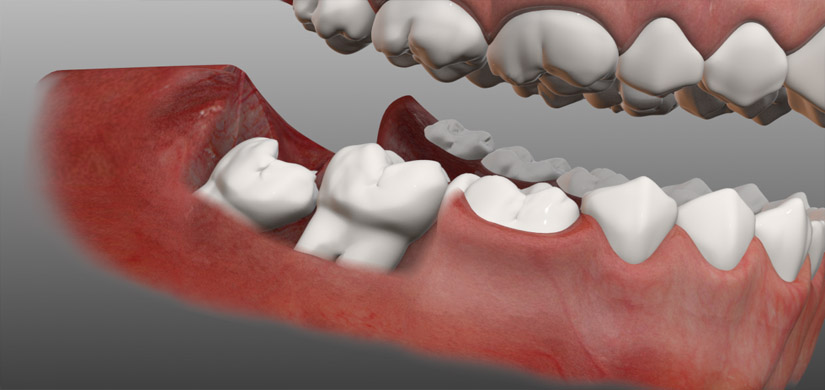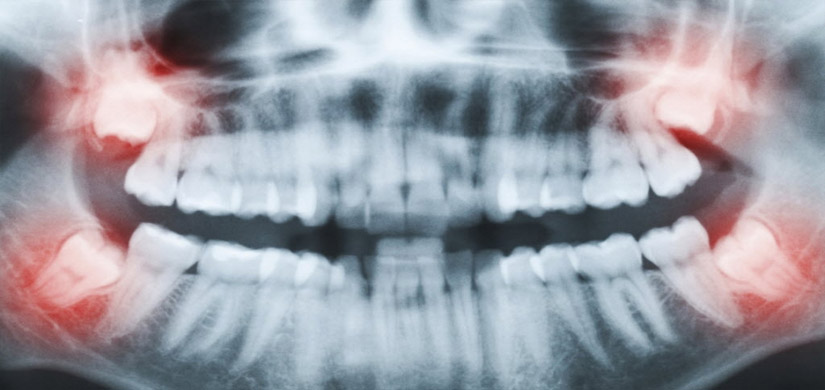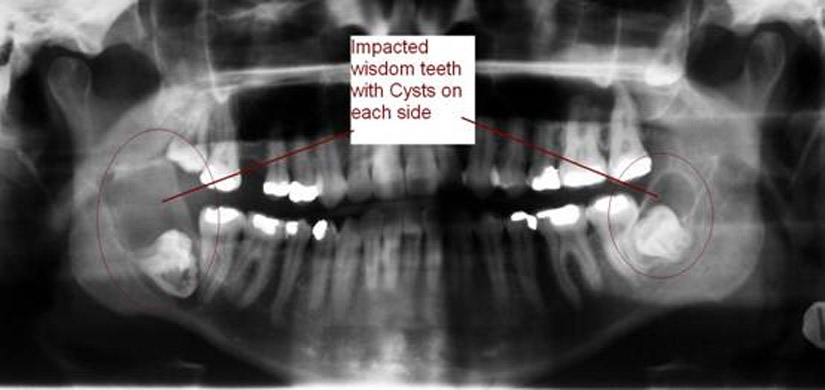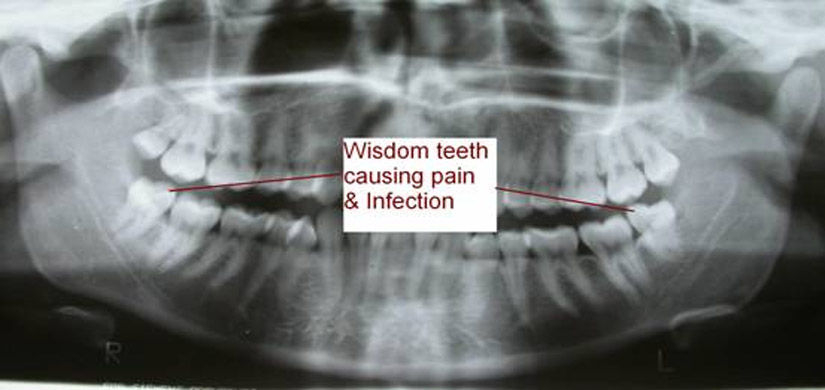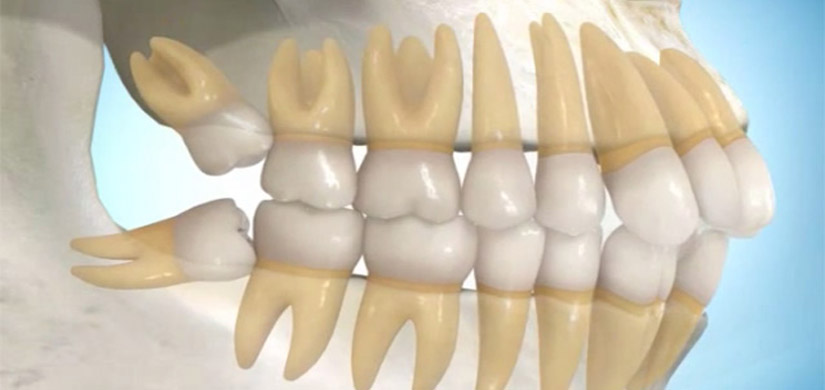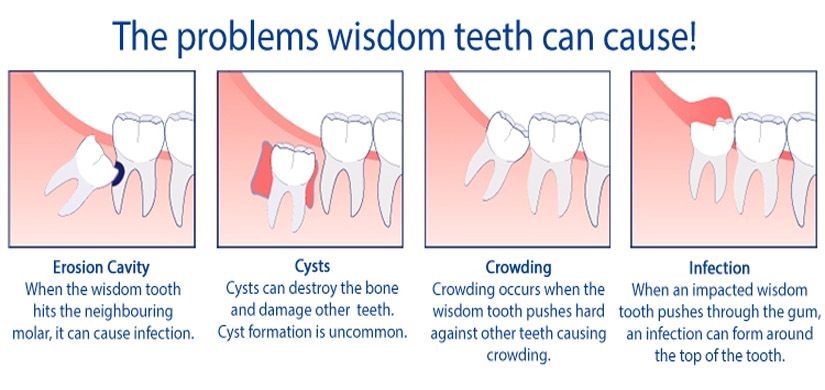Because wisdom teeth are difficult to clean as they are far back in the mouth and are not fully erupted, there may be a build-up of bacteria, plaque, and food debris around them – something that causes pain, swelling, gum infection and decay in the wisdom teeth and adjacent teeth.
Followings are the common reasons for removal of wisdom teeth.
- Recurrent infection in the gums around the wisdom teeth called pericronitis
- Decay in the wisdom tooth that cannot be filled.
- Wisdom tooth causing an abscess.
- Disease of tissues around the tooth commonly called periodontal problems.
- Cyst formation around a wisdom tooth.
- Wisdom tooth is causing problems under a denture.
- Before under going jaw surgery. (Orthognathic Surgery)
- If somebody is planning to go an area where Specialist Dental Services are limited, then, it may be advisable to have wisdom teeth removed beforehand.
The American Association of Oral and Maxillofacial Surgeons and Oral and Maxillofacial Surgery Foundation study strongly recommends that wisdom teeth be removed when the patient is a young adult in order to prevent future problems and to ensure optimal healing. The researchers found that older patients may be at greater risk for disease, including periodontitis in the tissues surrounding the third molars and adjacent teeth. It’s also easier to remove the teeth in young adults, because the jaw bone is less dense and the tooth’s roots are not yet fully developed and not closer to the nerves, which supply sensations to lip, tongue and chin. It is estimated that about 85% of third molars will eventually need to be removed.
Hospitals at which I perform surgery under general anaesthesia (asleep):
- Clane General Hospital, Prosperous Road, Clane, Co. Kildare.
- Aut Even Private Hospital, Freshford Road, Kilkenny

